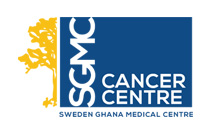By Abigail Amoah
With Africans becoming wealthier, non-communicable diseases like cancer are on a steady rise. The International Agency for Research on Cancer (IARC) reports that nearly 71% of people diagnosed with cancer in Africa die. This statistic is alarming considering Africa reports lower cancer cases than most parts of the world. Perhaps you have heard about the case of Ugandan Carol Aturhiwe who died in June last year, from lung and throat cancer due to underequipped cancer facilities in the country and on the continent. Has much changed in the past year?
In response to cancer being considered a public health threat, there have been contributions through partnerships to make cancer treatment more accessible to patients. One example of these partnerships – championed by leading pharmaceutical brands – benefits up to 6 countries on the continent (1 from West Africa) and has as part of its objectives, building capacity of underequipped oncology centers and expanding access to medicine for some common cancers in sub-Saharan Africa.
Another drawback of cancer care in Africa is the issue of late presentation of disease largely due to limited cancer knowledge. To that end, there are various initiatives targeting cancer education and advocacy in the region. The set-up of population-based cancer registries in many countries across the continent indicates future growth in the area of African centered cancer research which will inform government intervention and policies around cancer management. Also remarkable is the spike in investment into cancer care. Hospitals and cancer centers are opening new facilities, purchasing more state-of-the-art equipment and training oncology staff to meet the growing cancer treatment demands in Africa. In addition, organizations are opening cancer funds to provide financial support to their members and their dependants when they receive a cancer diagnosis.
Sweden Ghana Medical Centre has in the past year been involved in a number of these developmental projects to support cancer management in Ghana. For instance, through its maiden medical research symposium, a multi-disciplinary team of health experts gathered to discuss and implement action items towards supporting African-Centered research in this era of precision medicine. From this symposium research networks were borne and various medical projects carried out. Secondly, we have expanded training of professionals in oncology from Ghana and other African countries. In 2017/2018, We trained up to 12 Oncologists and medical physicists from Eastern and Western Africa as well as student interns from across Ghana, the US and the UK. In equipping these individuals, we aid in capacity building for cancer care. SGMC has also invested in new machines for cancer treatment such as our new Brachytherapy machine launched in July 2018 for cervical & prostate cancer procedures. Through such investments, training and partnerships we stay true to our mission to take away the burden of cancer in everything we do.
Suffice to say that, although cancer remains a stigma in our part of the world and doesn’t receive as much recognition as other chronic diseases, there has been tremendous improvement in cancer management both in the private and public sectors in various African countries. As well, previously neglected regions of Africa are now increasing efforts to support cancer awareness, screening, treatment and financing. We can say with certainty that receiving a cancer diagnosis in Africa is not a death sentence! Treatment is available and one can be cancer-free. There are many success stories of patients who have survived cancer treatment in Africa and benefited from a high quality of life. You or your sick relative can be a success story too!
